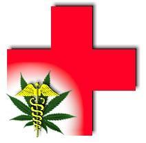Self-Experimentation: The Case of Medical Marijuana
Gary Wolf
October 24, 2007
The history of “recreational” drug use and medical self-experimentation is deeply intertwined, especially when medicine is broadly defined to include psychology. In San Francisco, where I live, there are numerous [cannabis clubs](http://www.sanfranciscocannabisclubs.com/) selling pot to holders of medical marijuana cards. Over the last few months there’s been a burst of attention to the sometimes humorous, sometimes grotesque “medical” justifications for these drug businesses. Everything is seen through the addled rhetoric of the drug war: the one hand, the harsh criminalization of drug use; on the other, the blatant silliness of dealers and partiers giving medical justifications for getting cash and getting stoned.
In a [recent episode](http://www.cbsnews.com/stories/2007/09/20/60minutes/main3281715.shtml) of Sixty Minutes even the medical marijuana pioneer Scott Imler complained of the “chaos.”
As an antidote these theatrics, a number of studies in the news today show that a few rays of hope are breaking through. Wired news is [reporting today](http://blog.wired.com/wiredscience/2007/10/a-little-mariju.html) on two studies measuring the effectiveness of marijuana on mental and physical suffering. In a small, placebo controlled study at the University of California, San Diego that measured the effectiveness of cannabis on pain. Yes, it is an effective pain killer; but only at medium doses. Large doses actually made the pain worse.
Excerpt from the UCSD press release:
http://www.eurekalert.org/pub_releases/2007-10/uoc–scp102407.php
> In the placebo controlled study of 15 subjects, a low dose of cannabis showed no effect, a medium dose provided moderate pain relief, and a high dose increased the pain response. The results suggest a “therapeutic window” for cannabis analgesia, according to lead researcher Mark Wallace, M.D., professor of anesthesiology at UCSD School of Medicine and Program Director for the UCSD Center for Pain Medicine.
Meanwhile, Science Daily [is reporting](http://www.sciencedaily.com/releases/2007/10/071023183937.htm) that a medium dose of marijuana also has promise as an anti-depressant, but larger doses not only reduce this anti-depressant effect but actually reverse it. These are trials in mice, using the forced swimming test.
Such studies – small and preliminary as they are – offer hope that the on-going self-medication of pain and depression sufferers could become effective. But there’s another, larger promise in medical marijuana research. It provides a great test bed for pioneering collaboration between volunteers, self-experimenters, and research scientists. Marijuana is obviously a useful drug, but its effects are complex. It can both relieve pain and worsen pain; relieve depression and worsen depression. At the same time, it has already been widely used and proven to be relatively safe. This gives researchers a chance to create large studies using volunteers in a natural setting. With the right protocols, and the right data gathering measures, there are tens of thousands of potential participants in research, human subjects who share both a self-interest and an altruistic interest in aiding this research. Many of them think of themselves as advocates and activists. While [forcing stoned mice to swim](http://en.wikipedia.org/wiki/Behavioural_despair_test) until they despair is a proven research method, the study of medical marijuana is an area where naturalistic protocols could be perfected.


